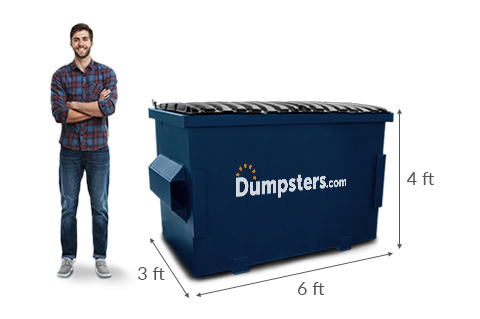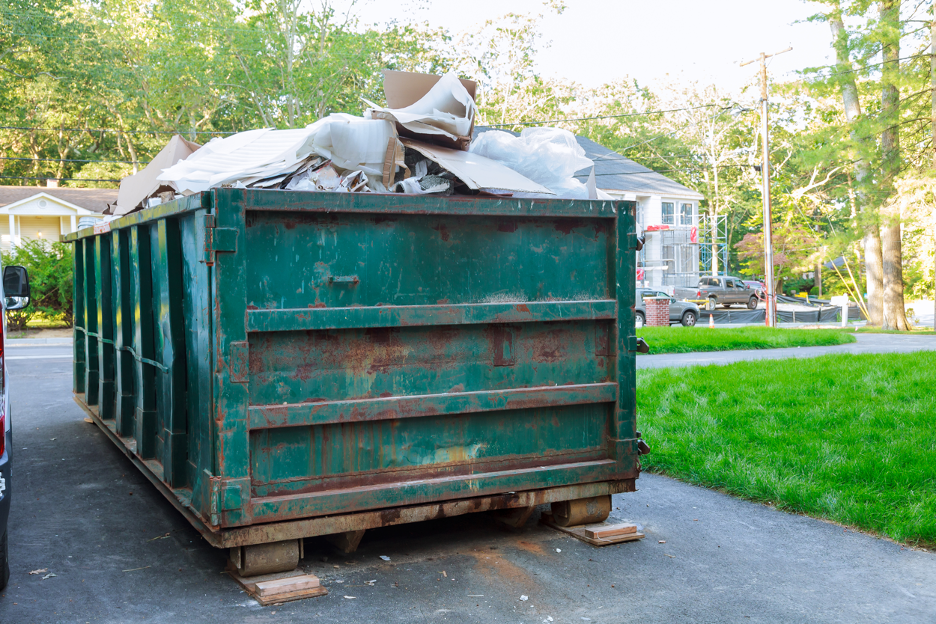Introduction
When it concerns managing waste, dumpster rentals function as an invaluable resource for both household and business needs. Nonetheless, browsing the world of dumpster leasings isn't as straightforward as just calling a carrier and purchasing a container. Several intricacies enter into play, specifically neighborhood policies that control just how dumpsters are made use of, placed, and disposed of. Understanding the significance of neighborhood policies in dumpster rentals can save you time, money, and a whole lot of migraines in the lengthy run.
This write-up digs deep into different aspects of dumpster rental laws, highlighting why they matter. We will certainly discover whatever from zoning legislations and authorization demands to security procedures and ecological considerations. Whether you're a property owner looking to declutter or a specialist handling a significant building and construction task, this detailed guide will certainly furnish you with the expertise essential for success.
The Relevance of Neighborhood Laws in Dumpster Rentals
Local guidelines play a vital role in dumpster rentals for numerous factors. Firstly, these policies guarantee that waste disposal is performed in a fashion that safeguards public health and wellness and safety and security. They frequently dictate where dumpsters can be placed-- helping avoid blockages on sidewalks or roads-- and detail the sorts of waste that might be discarded.
Furthermore, laws frequently include guidelines for proper loading techniques to prevent overloading and splilling, which could result in unattractive messes or environmental hazards. Abiding by these regulations not only keeps areas cleaner however additionally minimizes potential lawful issues for renters.

Zoning Regulations Impacting Dumpster Rentals
Zoning laws regulate land usage within specific locations. These legislations determine whether certain kinds of companies or tasks can run in assigned zones. When it comes to dumpster leasings:
- Residential Zones: A lot of localities have strict rules prohibiting dumpsters from being placed on residential properties without permits. Commercial Areas: Businesses may have much more flexibility yet still require to abide by placement guidelines.
Understanding these distinctions can aid you identify where you can put your dumpster legally.
Permit Requirements for Dumpster Rentals
In many territories, obtaining an authorization is required before positioning a dumpster on public residential or commercial property or even personal property in some cases. Below's what you need to know about authorizations:
Application Refine: This typically entails submitting types outlining the type of waste you'll be disposing of. Fees: There may be a linked charge based on the duration of the rental. Duration Limits: Permits frequently specify how much time you can keep the dumpster on-site.Failing to get the essential licenses can result in fines or having your dumpster got rid of prematurely-- a costly mistake!
Safety Methods Regulating Dumpster Use
Local policies commonly integrate different safety and security procedures created to protect both individuals making use of dumpsters and those passing by them:
- Signage Needs: Some communities call for clear signs indicating that there's a dumpster present. Secure Loading Practices: Guidelines might dictate exactly how to pack products safely into the container.
These measures do not just adhere to regional laws; they additionally promote neighborhood safety.
Environmental Considerations and Regulations
Waste administration is fundamentally linked to ecological stewardship. Regional policies often consist of specifications focused on decreasing environmental impact:
- Recycling Requireds: Some locations call for recyclable products to be divided from general waste. Hazardous Waste Protocols: Specialized bins may be required for harmful products like batteries or chemicals.
Adhering purely to these laws does not simply stay clear of fines; it also contributes positively in the direction of sustainability efforts.
Types of Dumpsters: Which One Do You Need?
Roll-Off Dumpsters
Roll-off dumpsters are often used for big jobs such as restorations or construction job as a result of their size and convenience of transport.
Advantages:
- Ideal for hefty debris Available in several sizes
Disadvantages:
- Require space for drop-off/pick-uphtmlplcehlder 117end. Often included higher rental costs
Front Load Dumpsters
Commonly found at services such as dining establishments or stores, front lots dumpsters enable simple accessibility for constant waste disposal.
Advantages:
- Suitable for everyday use Smaller footprint
Disadvantages:
- Limited capacity contrasted to roll-offs Not ideal for large items
Cost Elements Affecting Dumpster Rentals
Numerous aspects influence the expense related to renting a dumpster:
Size: Bigger containers usually cost more. Rental Period: Longer rental periods will certainly boost total costs. Type of Waste: Unsafe materials typically sustain added fees. Location Charges: Some locations might have higher disposal costs owing to stricter regulations.Understanding these components encourages you to spending plan effectively.
Choosing a Trustworthy Dumpster Rental Company
When it comes time to lease a dumpster, choosing the right firm can significantly affect your experience:
1. Reputation Matters
- Look online for testimonials or testimonials from previous customers.
2. Transparent Pricing
- Ensure that they supply all-encompassing prices without concealed fees.
3. Service Level
- Evaluate their client service responsiveness before making a decision.
FAQs
Q1: Do I require a permit for my dumpster rental?
A: Yes, most jurisdictions call for authorizations if you intend to place it on public building; consult your regional government.
Q2: Can I place anything I want in my rented out dumpster?
A: No! Numerous things are restricted as a result of ecological worries; constantly consult your rental provider's guidelines.
Q3: How long can I keep my rented dumpster?
A: This depends on your permit problems; usually, rentals last in between 7 days as much as several weeks relying on use needs.

Q4: What happens if my dumpster is overloaded?
A: Overloading can result in added charges or potentially trigger injury during transportation; it's important not to go beyond weight limits established by your provider.
Q5: Can I rent numerous dumpsters at once?
A: Yes! Numerous companies supply discounts when renting several systems all at once-- simply validate schedule beforehand!
Q6: What should I do if I have unsafe waste?
A: Contact your neighborhood waste monitoring authority first; specialized disposal techniques should be adhered to due to security concerns.
Conclusion
Understanding the significance of regional guidelines in dumpster rentals can not be overstated-- it impacts whatever from precaution and environmental stewardship down to financial considerations like licenses and fees. As we have actually discovered throughout this write-up, conformity with regional regulations not just cultivates area tidiness however also shields individuals and businesses alike from possible lawful ramifications.
http://piedmont-triad-dumpsters.trexgame.net/mastering-dumpster-rentalsWhether you're planning for a home renovation project or managing large building procedures, understanding is power! By familiarizing yourself with relevant laws and choosing trusted companies accordingly, you'll simplify your experience while sticking purely to necessary guidelines-- making your next dump-and-go procedure smooth sailing!
